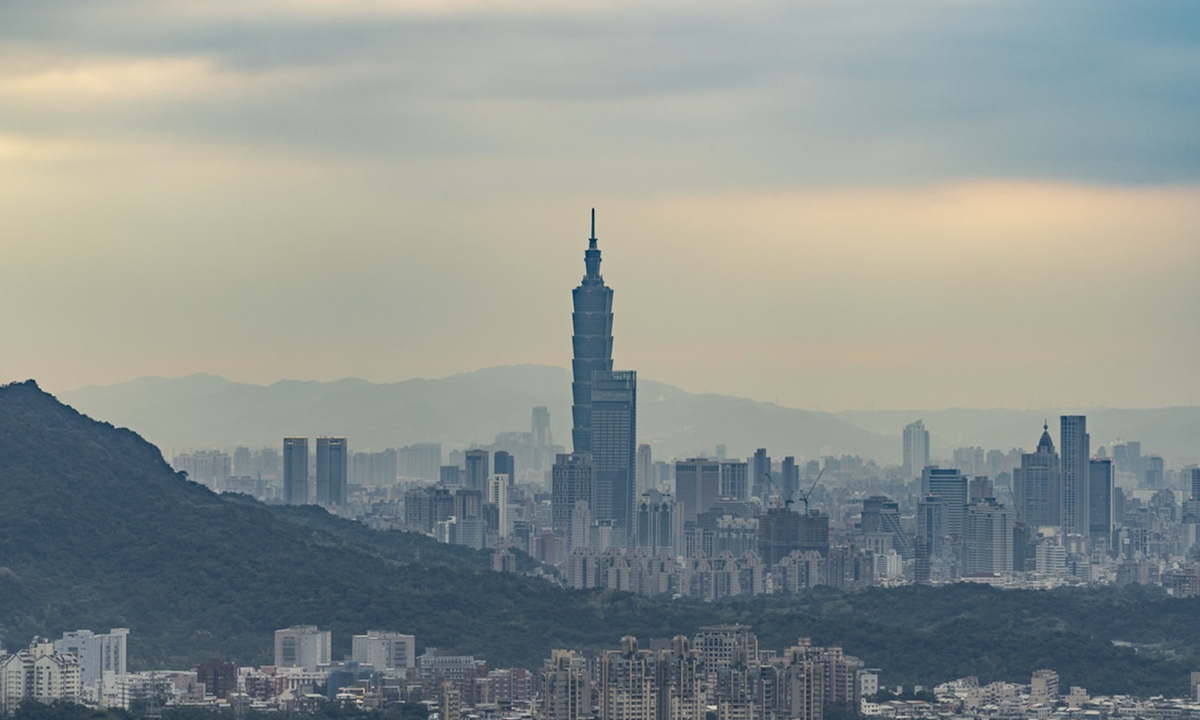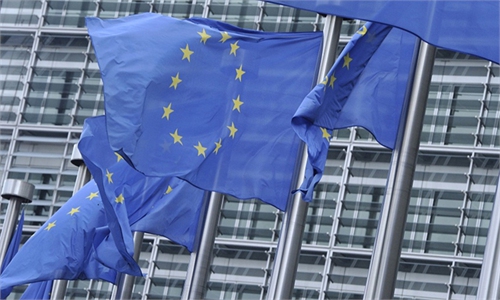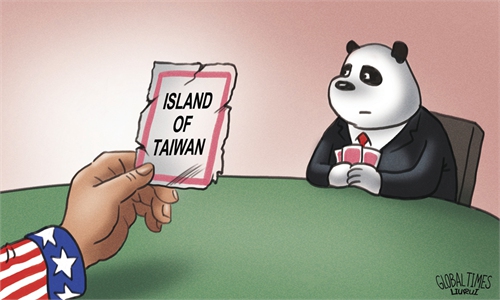EP hijacks EU members with report hyping enhanced
‘economic ties’ with secessionist Taiwan authorities

Taiwan Photo: Unsplash
The European Parliament (EP) once again is creating troubles for European countries by passing a report on the "Indo-Pacific Strategy in the Area of Trade and Investment," in which the EU's legislative body calls on EU members to promote economic ties with authorities on the island of Taiwan, especially in the semiconductor industry.
Chinese experts on Wednesday denounced the EP's "negative role" in China-EU ties, as it attempts to coerce European countries to contact with the secessionist Democratic Progressive Party (DPP) authorities in Taiwan in substance and to strategically include the island in the US-led anti-China supply chain.
Taiwan appeared eight times in the report passed on Tuesday, in which EU legislators urged the EU to launch a "structured dialogue" with Taiwan authorities on cooperating in the digital economy, highlighting cooperation in the semiconductor industry that the island is proud of, by signing a memorandum of understanding (MoU).
The EP also called on the EU to begin the process of "bilateral investment agreement" with the island and promote cooperation on "resilient supply chains" with the island. It also called for closer ties with Taiwan authorities in global health crisis and trading of medical supplies.
The report, in which the term "Taiwan" appeared 8 times, is the sixth "pro-Taiwan" document passed in the EP in 2022, according to Taiwan media. The previous five ranged from common security and defense police, and Indo-Pacific challenges.
Sun Keqin, a research fellow at the China Institutes of Contemporary International Relations, told the Global Times on Wednesday that the Chinese government is not opposed to unofficial economic and trade relations between the island of Taiwan and Europe under the one-China principle. However, the EP's report exposed their intention of substantively developing relations with the island in forming US-led industrial chains that exclude the Chinese mainland.
Taiwan authorities held a trade and investment dialogue with the European Commission on June 2, exchanging views over topics like the semiconductor sector, supply chains and security, Taiwan-based media said, noting that the dialogue was usually held at "the deputy-minister" level in the past but it was upgraded to "minister level" with European Commission Director-General of Trade Sabine Weyand participating.
The EP has been removing its veil in developing substantial relations with Taiwan authorities since Lithuania allowed the island to open a representative office under the name of "Taiwan" in 2021, which is playing a negative role in the overall China-EU ties.
Legislators in the EP are elected from EU member countries with the rights to speak loud but rarely get constrained. Analysts said that although their roles at the EP do not represent the policies of their own governments, their stance over the Taiwan question represents a retreat from the EU's policy toward China as a whole, as the European Parliament is usually the first to test any moves that might worsen relations with China.
China and EU have barely had the Taiwan question on the table before, but things have changed, Cui Hongjian, director of the Department of European Studies at the China Institute of International Studies, told the Global Times on Wednesday.
As the Czech Republic, which is regarded as a "Taiwan-friendly" country in its congress, assumed EU Council presidency on July 1, the EU's route of developing ties with Taiwan authorities may not change in the short term, Cui said, "However, governments' specific decisions in EU members on Taiwan-related issues will vary from national interests."
In the report, China was described as "a partner for cooperation," but also "an economic competitor and a systemic rival in a number of areas."
Maybe the EU wants to reduce its dependence on the Chinese mainland, and maybe Europe wants to use Taiwan island as a bargaining chip to seek deals with the Chinese mainland in its favor, but that does not mean Europe's elites are dumb enough to think that Taiwan island, with 23 million people, can be a substitute for the mainland, with 1.4 billion people, Cui said.
On July 1, three major state airlines in the Chinese mainland announced the purchase of 292 Airbus jets worth $37 billion, a demonstration of mutually beneficial China-EU ties despite some political differences.
China-EU relations have been developing well and have brought huge benefits to both sides on a relatively solid basis, Sun said. "It is in the fundamental interest of both sides to develop economic and cultural cooperation and exchanges. Antagonism and confrontation against China are not necessarily in the interests of the EU, but of the US," he said.
European countries need to handle the Taiwan question rationally and prudently on the basis of the one-China principle and should not attempt to hollow out the one-China principle under the banner of "economy and trade," otherwise it will easily step over the red line, Sun said.
According to the Chinese Foreign Ministry, in 2021, China was the EU's largest trading partner, largest source of imports and third-largest export market. In 2021, China-EU trade totaled $828.11 billion, up 27.5 percent year-on-year.



